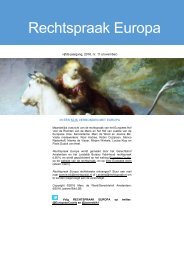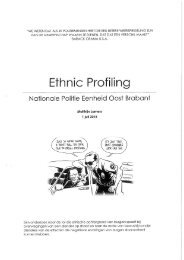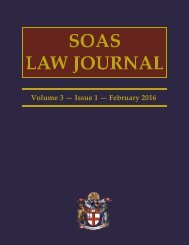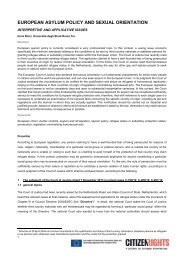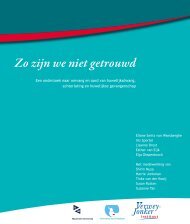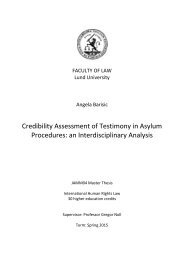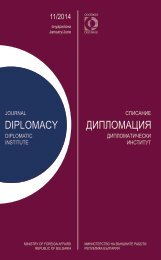AEMI
AEMI-2016-web
AEMI-2016-web
Create successful ePaper yourself
Turn your PDF publications into a flip-book with our unique Google optimized e-Paper software.
NONJA PETERS<br />
119<br />
India Company remained an important<br />
trading concern paying an 18 per<br />
cent annual dividend for almost all that<br />
time. However, in its declining years in<br />
the late eighteenth century it was referred<br />
to as Vergaan Onder Corruptie<br />
(referring to the acronym VOC), which<br />
translates as ‘Perished By Corruption’.<br />
The VOC became bankrupt and was<br />
formally dissolved in 1800, its possessions<br />
and the debt being taken over by<br />
the government to become a colony the<br />
Netherlands East Indies and expanded<br />
over the course of the 19th century to<br />
include the whole of the Indonesian archipelago.<br />
In the mid 20th century it<br />
would form Indonesia. The trade with<br />
the Spice Islands that had evolved with<br />
Europe also benefitted the economies of<br />
the great maritime nations of Britain,<br />
France, Portugal, Spain as well as the<br />
Netherlands and for the next three centuries<br />
they were in play helped engender<br />
the collections of their up coming museums<br />
with amazing and exotic artifacts.<br />
The Dutch East India Company incursion<br />
into the IOR is also responsible<br />
for the European discovery of Australia<br />
in 1606. However, this discovery would<br />
ultimately benefit Britain most as it was<br />
Britain that colonised Australia from<br />
1788 albeit initially as a penal colony.<br />
However, initial British economic interest<br />
was in India and that commenced<br />
around 1600. Initially in opposition to<br />
the Dutch who had established themselves<br />
securely in Indonesia, the British<br />
East India Company (1600–1874) 30<br />
decided to concentrated on setting up<br />
trading posts at Bombay, Madras, and<br />
Calcutta. The area controlled by the<br />
East India Company grew over time.<br />
Eventually, it governed directly or indirectly<br />
an area that included modern<br />
Bangladesh, most of southern India, and<br />
nearly all the territory along the Ganges<br />
River in the north. However, from 1858<br />
these vast areas became a British colony.<br />
Their economic activities also initiated<br />
a first wave diaspora out of Britain into<br />
the colonies that helped relieve some of<br />
the pressure on urban areas in Britain<br />
wrought by the large-scale internal migration<br />
from the countryside into the<br />
urban areas that accompanied the Industrial<br />
Revolution. The immense process<br />
of change it incurred from the late<br />
eighteenth to nineteenth centuries converted<br />
Britain from an agrarian, handicraft<br />
economy to one dominated by<br />
industry and machine manufacture. 31<br />
However, this was not the only change<br />
incurred, the company’s wealth also<br />
helped create a wealthy British middle<br />
class that could afford to purchase some<br />
of the goods and artefacts imported into<br />
Britain by its East India Company.<br />
The mobility of peoples that followed<br />
on from the early trading routes, Age of<br />
Exploration, and the Agrarian and Industrial<br />
Revolutions fuelled an unprecedented<br />
volume of exchange across the<br />
boundary lines of societies and cultural<br />
regions including historical objects into<br />
the cultural institutions of Europe. They<br />
included luxury items, spices biological<br />
species: plants, food crops and animals.<br />
However, this people and goods mobility<br />
is also responsible for the spread of<br />
disease pathogens and DNA into human<br />
populations and regions not previously<br />
visited. These biological exchanges had<br />
differing and dramatic effects on human<br />
populations, destroying some of them<br />
through epidemic diseases while enlarging<br />
others through increased food



